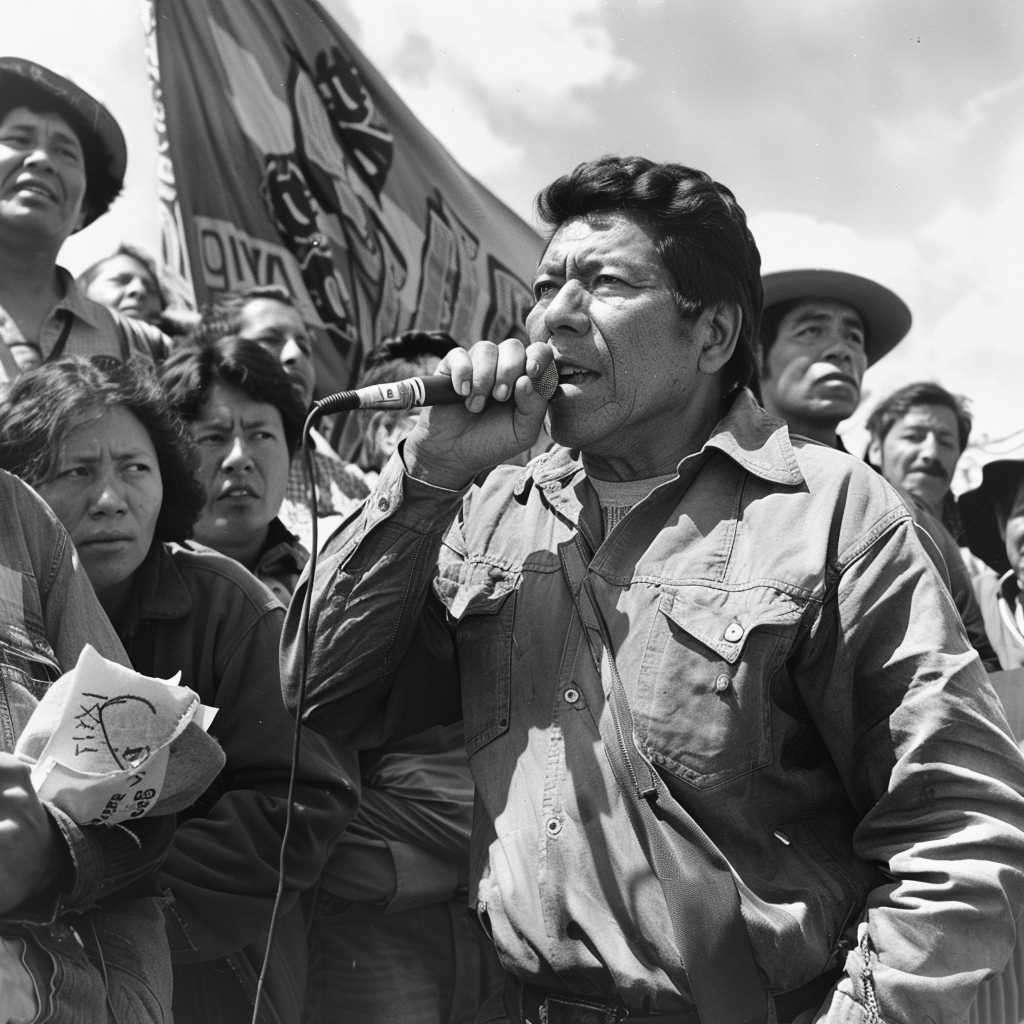The Life and Legacy of César Chávez: Champion of Farmworkers’ Rights
César Chávez is a name synonymous with the American labor movement, particularly in the realm of agriculture. As a civil rights activist and labor leader, Chávez dedicated his life to improving the conditions and treatment of farmworkers across the United States. This comprehensive article delves into his early life, the struggles he faced, the victories he achieved, and the lasting impact his work has had on labor rights and social justice.
A Humble Beginning
Born on March 31, 1927, in Yuma, Arizona, César Estrada Chávez grew up in a Mexican-American family immersed in the world of agricultural labor. The Great Depression dealt a heavy blow to his family’s fortunes, and they lost their farm, prompting them to move to California as migrant workers. This experience with hardship and toil shaped Chávez’s early worldview and sowed the seeds for his tireless advocacy for underprivileged communities.
Early Activism and Awakening
Chávez served in the United States Navy during World War II. After his service, he returned to California, where he married Helen Fabela and delved deeper into labor activism. His initial involvement with the Community Service Organization (CSO), a prominent Latino civil rights group, played a critical role in his development as a leader. At CSO, he honed his skills in organizing and advocating before ultimately breaking away to directly address the plight of farmworkers.
UFW and La Causa
In 1962, rejecting what he saw as insufficient progress by existing entities like the CSO in addressing farmworkers’ problems, Chávez co-founded the National Farm Workers Association (NFWA) with labor organizer Dolores Huerta. Later renamed the United Farm Workers (UFW), this organization would become a key force for change in American agriculture. It operated using nonviolent methods: strikes, marches, boycotts, and hunger strikes modeled after Mahatma Gandhi’s approach to resistance.
Struggles for Unionization: Delano Grape Strike and Boycott
Chávez’s staunch commitment to nonviolent protest was put to the test during one of UFW’s seminal conflicts – the Delano Grape Strike of 1965. Farmworkers walked off their jobs demanding higher pay and better working conditions. This strike continued for over five years and included a boycott of table grapes that gained national support. The resolve shown by Chávez during this time gave credibility and moral high ground to the UFW and established him as a national figure in labor activism.
Achieving Victories: The Robert F. Kennedy Alliance
Chávez’s involvement with prominent political figures—like Senator Robert F. Kennedy—helped gain political leverage for farmworkers’ rights. Kennedy’s presence at Senate hearings on migrant workers demonstrated government recognition of their strife. Eventually, many growers signed contracts with UFW, recognizing it as the bargaining agent for their workers—marking significant strides toward improved labor conditions.
Raising Awareness Through Fasts
Throughout his life, Chávez engaged in several fasts—the most famous at 36 days—to draw attention to farmworkers’ suffering from pesticides and unsustainable labor practices. These fasts exemplified personal sacrifice vs. policy change advocacy exemplified his dedication to nonviolent protest—strengthening solidarity among supporters for labor justice.
Enduring Influence: Educational Initiatives and Acts
Chávez’s contributions transcended immediate agricultural benefits by fostering educational endeavors like funding grants, supporting scholarships for children of farmworkers, about activism promoting various environmental and public health issues within farming communities. Complementing this educational pursuit was legislative action; most notably, Chávez led efforts culminating in the passage of the California Agricultural Labor Relations Act of 1975—the first law that granted farmworkers in America the right to collectively organize and bargain for better working conditions.
Continuing Impact After Death
Chávez’s death on April 23, 1993, did not mark an end to his influence; instead it fortified it. He became an iconic figure representing dedication towards social justice within agrarian contexts for future generations.
Notes
Image description: A picture captures César Chávez mid-speech at a protester rally surrounded by fellow farmworkers bending forward into microphone earnest expression under banner enblazon humanity wisdom ages array latino heritage elements forming background patchwork unity resilience determination Sign-off all he championed stood throughout lifetime combined dignified aura legacy still echoes significant moment history depended primarily large together listening speech enlightened Chavez is spirit rallying cooperation strength collective effortsRuleContext by raised fist honor resistance symbol now universally recognized associate work unionization_EmPOWERmentEVENT_works_shop_stand_SELLEBRATE_labor_solidarity transpiring movement_credit creditwhen remCG MorrowEDIATE_TRANSFER_VEILLhistoricPARODY_watchARTSAFE_grassrootsJesters-
